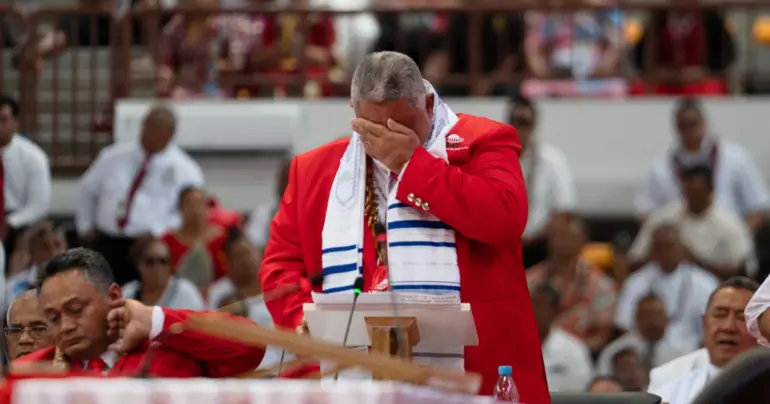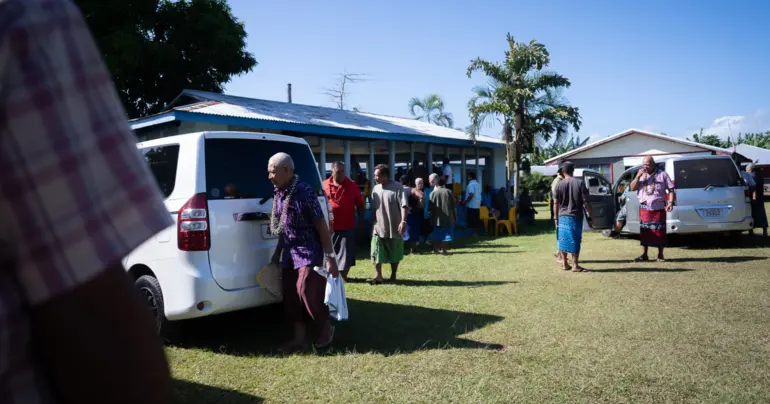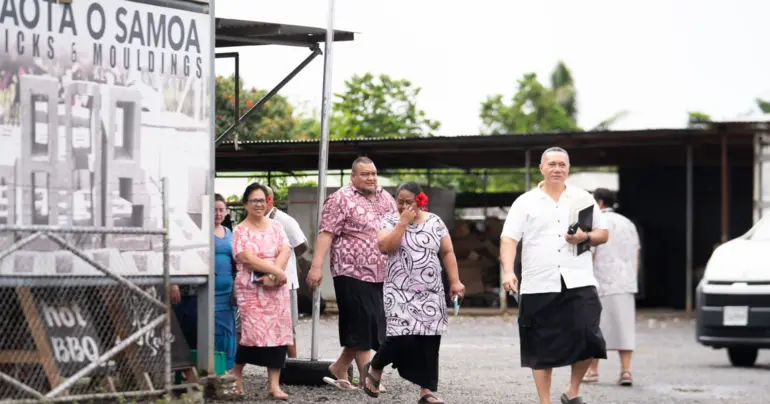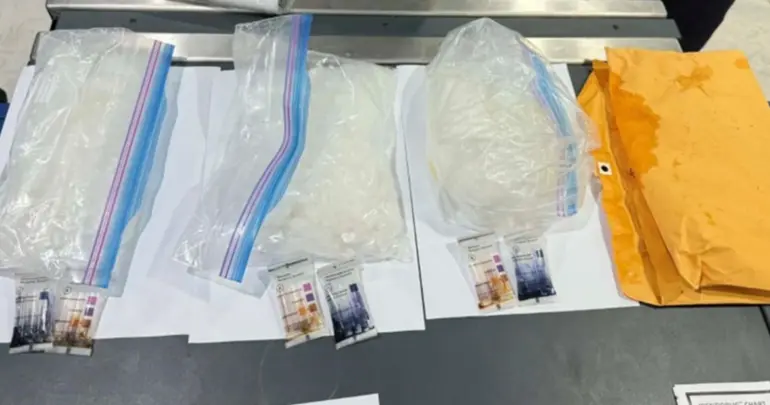The Attorney-General and the question of integrity
 By The Editorial Board
•
07 May 2021, 6:30AM
By The Editorial Board
•
07 May 2021, 6:30AM
If you log onto the official website of the Office of the Attorney-General you will not miss its mission statement and vision emblazoned in bold letters at the top of the page below the coat of arms of Samoa.
“Our Mission: To serve the people of Samoa by upholding the Constitution and providing the highest quality legal services to Government.
“Our Vision: To ensure a safe and just society through the provision of quality and effective legal services.”
And we have had no real issues on the competency of the Office of the Attorney-General and its team of lawyers over the years, in fact nothing but praise for the Office, having done a great job in various civil and criminal proceedings, on top of its other core responsibilities of drafting laws, having oversight over charitable trusts and being the “protector of the judiciary.”
Tragically it only had to take the tabling and passing of the last Government’s Land and Titles Court (LTC) Bills in the Legislative Assembly last year, to realise how quickly the wheels fell off the bus at the Office of the Attorney-General, in terms of the Attorney- General’s role as the protector of the judiciary.
Current Attorney-General, Savalenoa Mareva Betham-Annandale, who was appointed in July last year to the position, began her defence of the controversial bills a month into her new job, despite being aware of the concerns as expressed by a number of Supreme Court Judges, the Samoa Law Society of which she remains a member, and various eminent jurists and international bodies including the United Nations of the bills’ impact on the rule of law and citizens’ fundamental rights following their enactment.
Over a year later Samoa unpredictably finds itself in a constitutional crisis, courtesy of a decision by the Office of the Electoral Commission after the April 9, 2021 general election vetted by the Head of State, His Highness Tuimaleali’ifano Vaaletoa Sualauvi II to declare a sixth woman member-elect.
The declaration overturned an earlier decision by the O.E.C. that the women’s 10 per cent quota for entry into Parliament had been fulfilled with the election of five women Member-elects, and led to the Fa’atuatua i le Atua Samoa ua Tasi (F.A.S.T.) party losing its one Member-elect majority of 26 (after Independent MP Tuala Iosefo Ponifasio expressed support for the party).
Consequently, both the F.A.S.T. and the Human Rights Protection Party tied on 26 seats each, with the decision by the O.E.C. and the Head of State relating to the declaration Aliimalemanu Moti Moemoemausu Alofa Tuuau as the sixth women Member-elect is now the subject of a Supreme Court proceeding.
On Wednesday Savalenoa appeared in the Supreme Court for the O.E.C. and lodged a new application for the discontinuation of the constitutional challenge filed earlier by the F.A.S.T. party, arguing that the announcement by the Head of State on Tuesday of his revocation of the April 9, 2021 general election takes precedence.
Her appearance for the O.E.C. in court this week was expected as the Government’s chief legal advisor.
But the silence from her and her Office last week when caretaker Prime Minister Tuilaepa Dr. Sa'ilele Malielegaoi first went public on radio 2AP – to air unsubstantiated allegations of unnamed members of the judiciary meeting with F.A.S.T. leader Fiame Naomi Mata’afa – was gross negligence of duty.
All attorneys general in countries that adopt a Westminster system of government including the Commonwealth have a sacred duty of defending the judiciary against misplaced criticisms, in order to maintain public confidence in the court system and all connected institutions including the Office of the Attorney-General.
Tuilaepa has a record for attacking the judiciary and Savalenoa continues to allow it to happen under her watch, even if it means the public already having reservations about the integrity of her own office.
Therefore it is always a concern when the nation’s chief legal officer maintains her silence when the judiciary is under attack from the Executive arm of Government, and then appears in court later arguing a case that would benefit the incumbent ruling party.
Perhaps the Attorney-General isn’t aware of the notion of “independent aloofness”, which was developed in the United Kingdom and established how Attorneys-General should conduct themselves. Basically it highlights the need for the Attorney-General to refrain “from engaging in robust political debate” and becoming “non-confrontational in relation to party politics.”
We leave to the public to decide if Samoa’s Attorney-General has already crossed that line.
But for the Supreme Court bench to call her out in the court hearing on Wednesday for failing to file submissions and disregarding court orders or directions – in relation to the current matter on foot between the F.A.S.T. and the O.E.C. – is unacceptable for a person in that judicial position.
There is a sacredness about the position of the Attorney General and its strong links to the rule of law and ultimately upholding the Constitution of the land formulated by our founding fathers.
Eric Himpton Holder Jr., who was the U.S. Attorney General from 2009 to 2015, once said: "The responsibility of the attorney general is to change things and bring us closer to the ideals expressed in our founding documents."
 By The Editorial Board
•
07 May 2021, 6:30AM
By The Editorial Board
•
07 May 2021, 6:30AM











